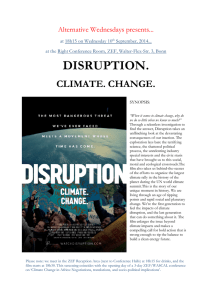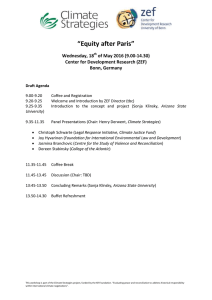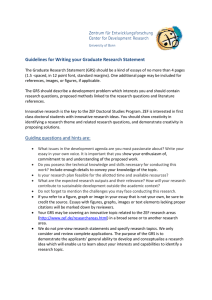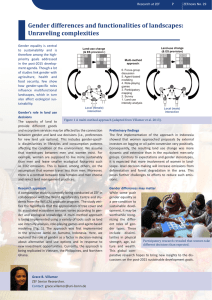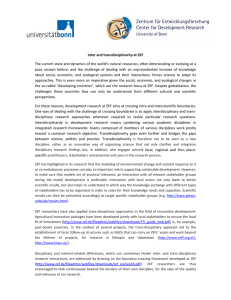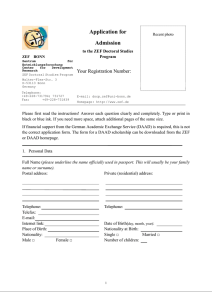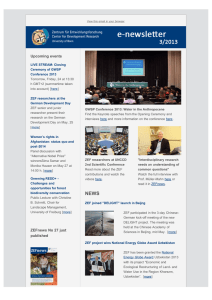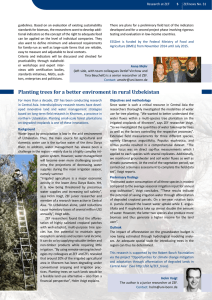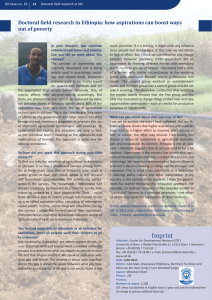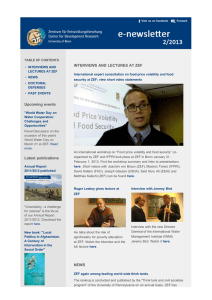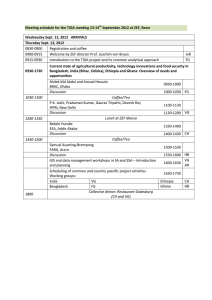ZEFnews No. 33 4 Sustainable development requires good decisions – deci-
advertisement
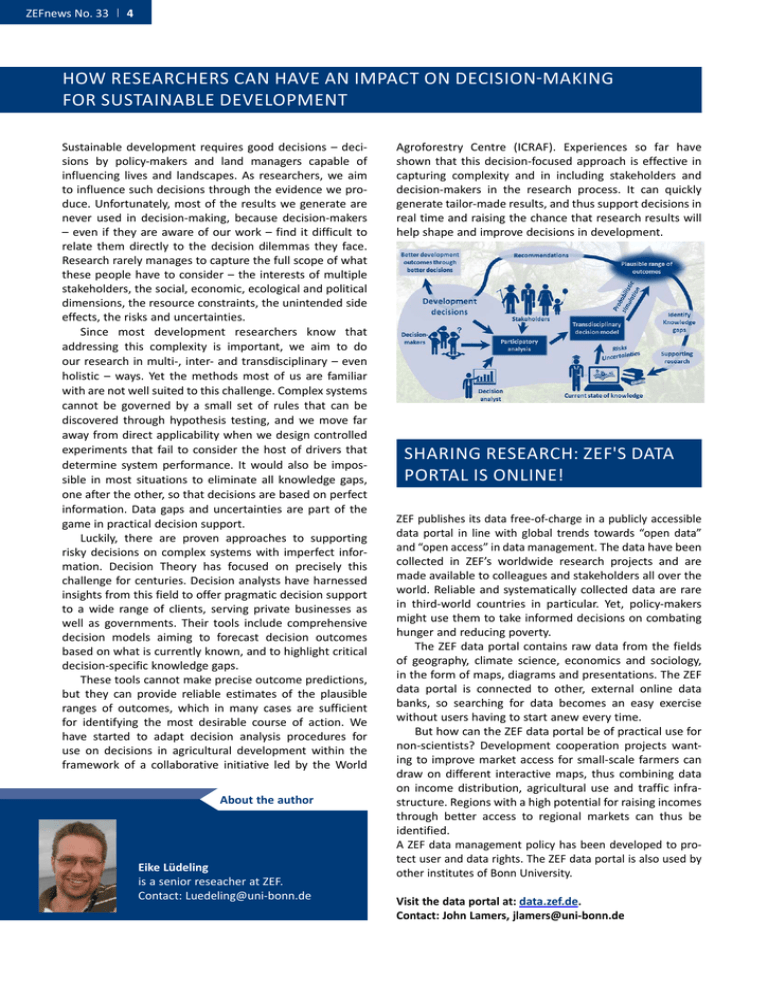
ZEFnews No. 33 4 HOW RESEARCHERS CAN HAVE AN IMPACT ON DECISION-MAKING FOR SUSTAINABLE DEVELOPMENT Sustainable development requires good decisions – decisions by policy-makers and land managers capable of influencing lives and landscapes. As researchers, we aim to influence such decisions through the evidence we produce. Unfortunately, most of the results we generate are never used in decision-making, because decision-makers – even if they are aware of our work – find it difficult to relate them directly to the decision dilemmas they face. Research rarely manages to capture the full scope of what these people have to consider – the interests of multiple stakeholders, the social, economic, ecological and political dimensions, the resource constraints, the unintended side effects, the risks and uncertainties. Since most development researchers know that addressing this complexity is important, we aim to do our research in multi-, inter- and transdisciplinary – even holistic – ways. Yet the methods most of us are familiar with are not well suited to this challenge. Complex systems cannot be governed by a small set of rules that can be discovered through hypothesis testing, and we move far away from direct applicability when we design controlled experiments that fail to consider the host of drivers that determine system performance. It would also be impossible in most situations to eliminate all knowledge gaps, one after the other, so that decisions are based on perfect information. Data gaps and uncertainties are part of the game in practical decision support. Luckily, there are proven approaches to supporting risky decisions on complex systems with imperfect information. Decision Theory has focused on precisely this challenge for centuries. Decision analysts have harnessed insights from this field to offer pragmatic decision support to a wide range of clients, serving private businesses as well as governments. Their tools include comprehensive decision models aiming to forecast decision outcomes based on what is currently known, and to highlight critical decision-specific knowledge gaps. These tools cannot make precise outcome predictions, but they can provide reliable estimates of the plausible ranges of outcomes, which in many cases are sufficient for identifying the most desirable course of action. We have started to adapt decision analysis procedures for use on decisions in agricultural development within the framework of a collaborative initiative led by the World About the author Eike Lüdeling is a senior reseacher at ZEF. Contact: Luedeling@uni-bonn.de Agroforestry Centre (ICRAF). Experiences so far have shown that this decision-focused approach is effective in capturing complexity and in including stakeholders and decision-makers in the research process. It can quickly generate tailor-made results, and thus support decisions in real time and raising the chance that research results will help shape and improve decisions in development. SHARING RESEARCH: ZEF'S DATA PORTAL IS ONLINE! ZEF publishes its data free-of-charge in a publicly accessible data portal in line with global trends towards “open data” and “open access” in data management. The data have been collected in ZEF’s worldwide research projects and are made available to colleagues and stakeholders all over the world. Reliable and systematically collected data are rare in third-world countries in particular. Yet, policy-makers might use them to take informed decisions on combating hunger and reducing poverty. The ZEF data portal contains raw data from the fields of geography, climate science, economics and sociology, in the form of maps, diagrams and presentations. The ZEF data portal is connected to other, external online data banks, so searching for data becomes an easy exercise without users having to start anew every time. But how can the ZEF data portal be of practical use for non-scientists? Development cooperation projects wanting to improve market access for small-scale farmers can draw on different interactive maps, thus combining data on income distribution, agricultural use and traffic infrastructure. Regions with a high potential for raising incomes through better access to regional markets can thus be identified. A ZEF data management policy has been developed to protect user and data rights. The ZEF data portal is also used by other institutes of Bonn University. Visit the data portal at: data.zef.de. Contact: John Lamers, jlamers@uni-bonn.de

